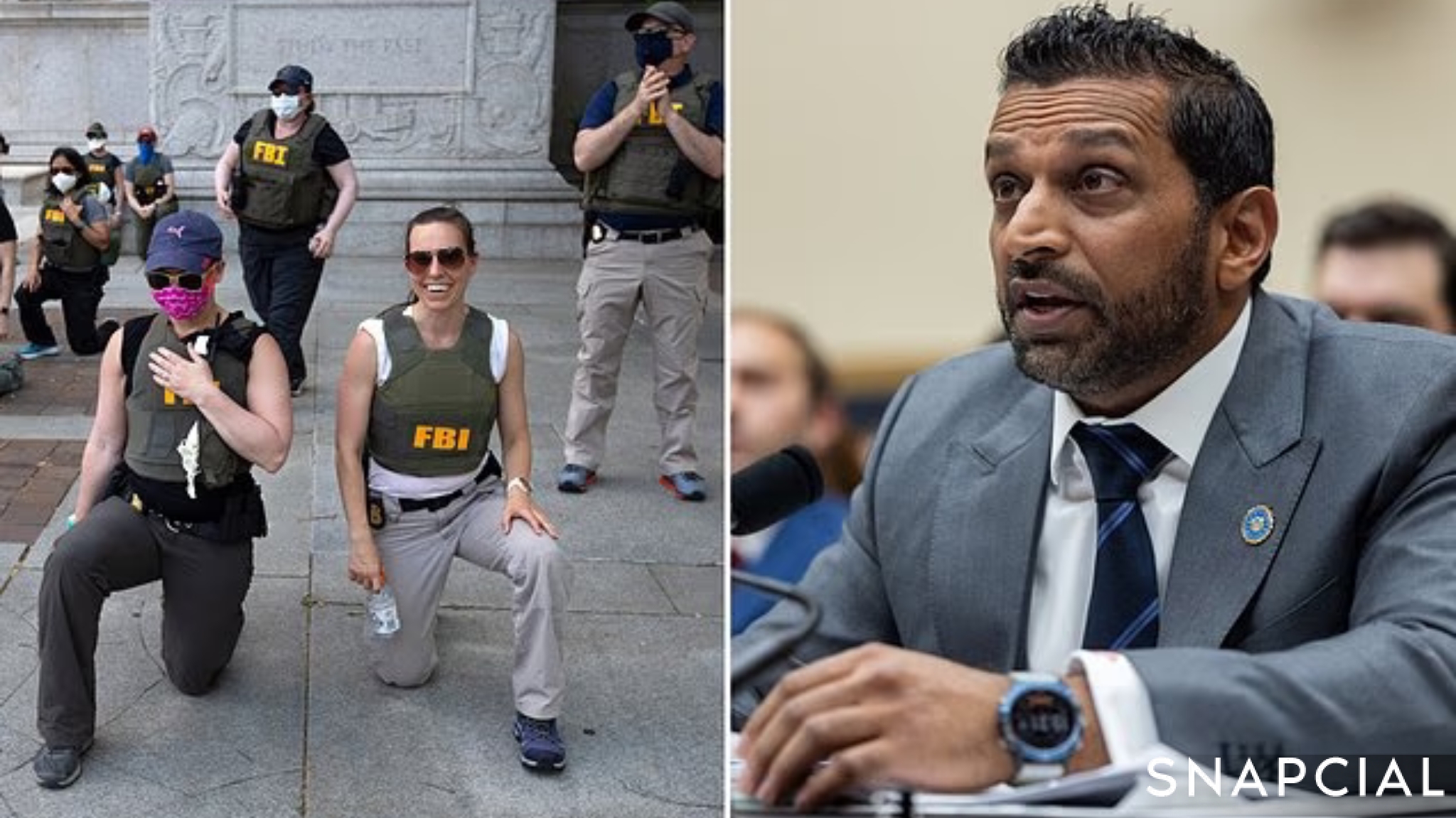NEWS
“‘You Are Politicizing Law Enforcement’: Expert Slams Kash Patel’s FBI for Firing Agents Over Kneeling Photos”

The FBI’s recent decision to fire agents who were photographed kneeling during the 2020 racial justice protests has sparked sharp criticism from civil-service experts, agents’ associations, and legal observers. Many argue the move undermines fairness, damages morale, and raises troubling questions about the politicization of law enforcement.
What Happened
Several agents were photographed kneeling during protests following George Floyd’s killing in 2020. The act was reportedly spontaneous, intended to calm demonstrators and prevent escalation. At the time, FBI leadership determined there was no policy violation, and no action was taken.
Years later, under new leadership, those same agents have been reassigned, demoted, or outright fired. Critics say this reversal not only disregards due process but also sends a chilling message across the bureau.
The Main Criticisms
1. Violation of Due Process
Experts highlight that agents were punished after already being cleared. Reopening the issue years later suggests the firings were politically motivated rather than based on misconduct. The FBI Agents Association has called the move unlawful, citing constitutional and civil service protections.
2. Damaging Morale and Internal Trust
Many agents saw the kneeling as a tactical choice to avoid confrontation, not a political statement. Punishing them now signals to employees that even efforts to de-escalate conflict can be career-ending. This has left some agents feeling targeted and unsupported.
3. Politicization of Law Enforcement
Critics warn that the firings reflect an ideological purge rather than a neutral enforcement of policy. Symbolic actions that once passed review are now punished harshly, raising fears that political loyalty is being prioritized over professional judgment.
4. Legal and Constitutional Concerns
Legal observers say the dismissals could violate civil service protections and open the FBI to lawsuits. If proven retaliatory, they could be seen as an abuse of power and a breach of agents’ rights.
Why It Matters
This crackdown isn’t just about individual careers. It sets a precedent for how the bureau handles dissent, restraint, or symbolic actions.
- Public trust: Punishing restraint risks deepening public skepticism about law enforcement’s fairness and impartiality.
- Operational risks: Agents may feel pressured to respond with force rather than empathy to avoid political backlash.
- Precedent for future purges: Today’s dismissals could pave the way for wider ideological purges within federal institutions.
The Counterargument
Supporters of the firings argue that FBI agents must remain neutral at all times, and public symbolic acts could be misinterpreted as political bias. However, critics note that context matters — in this case, kneeling was a de-escalation tactic, not partisan posturing. Moreover, similar symbolic gestures aligned with other causes have rarely been punished, highlighting inconsistency in enforcement.
Moving Forward
To restore accountability and morale, critics say the FBI must:
- Commit to transparent reviews of disciplinary actions.
- Apply clear, consistent standards across all cases.
- Protect agents’ due process rights to ensure firings are not politically motivated.
- Rebuild trust internally by recognizing the role of de-escalation in modern policing.
Final Thoughts
The firings over kneeling photos raise more than disciplinary questions — they strike at the heart of fairness and neutrality in federal law enforcement. If agents are punished for restraint, what message does that send to the public and to the next generation of FBI officers? Instead of protecting impartiality, the bureau risks eroding trust both inside and outside its walls.











